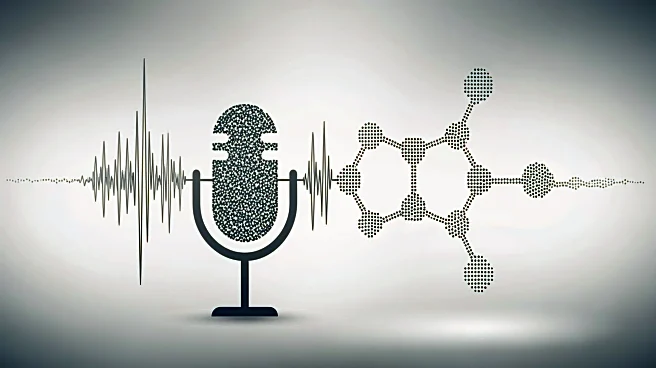What's Happening?
The 'Voice 2 Diabetes' initiative has transformed diabetes diagnosis in India by using AI to analyze voice patterns for detecting Type 2 diabetes. This innovative approach offers a non-invasive, accessible
alternative to traditional blood tests, addressing healthcare disparities in India. With over a billion mobile phone users, the initiative leverages widespread mobile technology to provide diagnostic services to millions, particularly in rural areas where access to healthcare facilities is limited. The project has gained international recognition, winning awards and forming partnerships with hospitals and NGOs globally.
Why It's Important?
This initiative is crucial in addressing the healthcare challenges faced by millions of Indians, particularly those in remote areas with limited access to diagnostic tests. By utilizing mobile technology, 'Voice 2 Diabetes' provides an affordable and accessible solution, potentially reducing the number of undiagnosed diabetes cases. The project's success could inspire similar innovations in other regions facing healthcare disparities, promoting the use of technology to improve public health outcomes. Additionally, the initiative highlights the potential of AI in revolutionizing healthcare diagnostics, paving the way for further advancements in medical technology.
What's Next?
The team behind 'Voice 2 Diabetes' is exploring partnerships with healthcare, technology, and venture capital firms to commercialize their innovations. They are also conducting studies on vocal biomarkers for other health conditions, such as concussions and gestational diabetes. These efforts could lead to the development of new diagnostic tools and expand the project's impact beyond diabetes. Continued collaboration with international partners may enhance the initiative's reach and effectiveness, potentially transforming healthcare diagnostics on a global scale.
Beyond the Headlines
The success of 'Voice 2 Diabetes' underscores the importance of leveraging technology to address healthcare disparities. It highlights the potential for mobile devices to serve as powerful tools in improving public health, particularly in regions with limited resources. The initiative also raises ethical considerations regarding data privacy and the use of AI in healthcare, prompting discussions on how to balance innovation with patient rights and safety.









